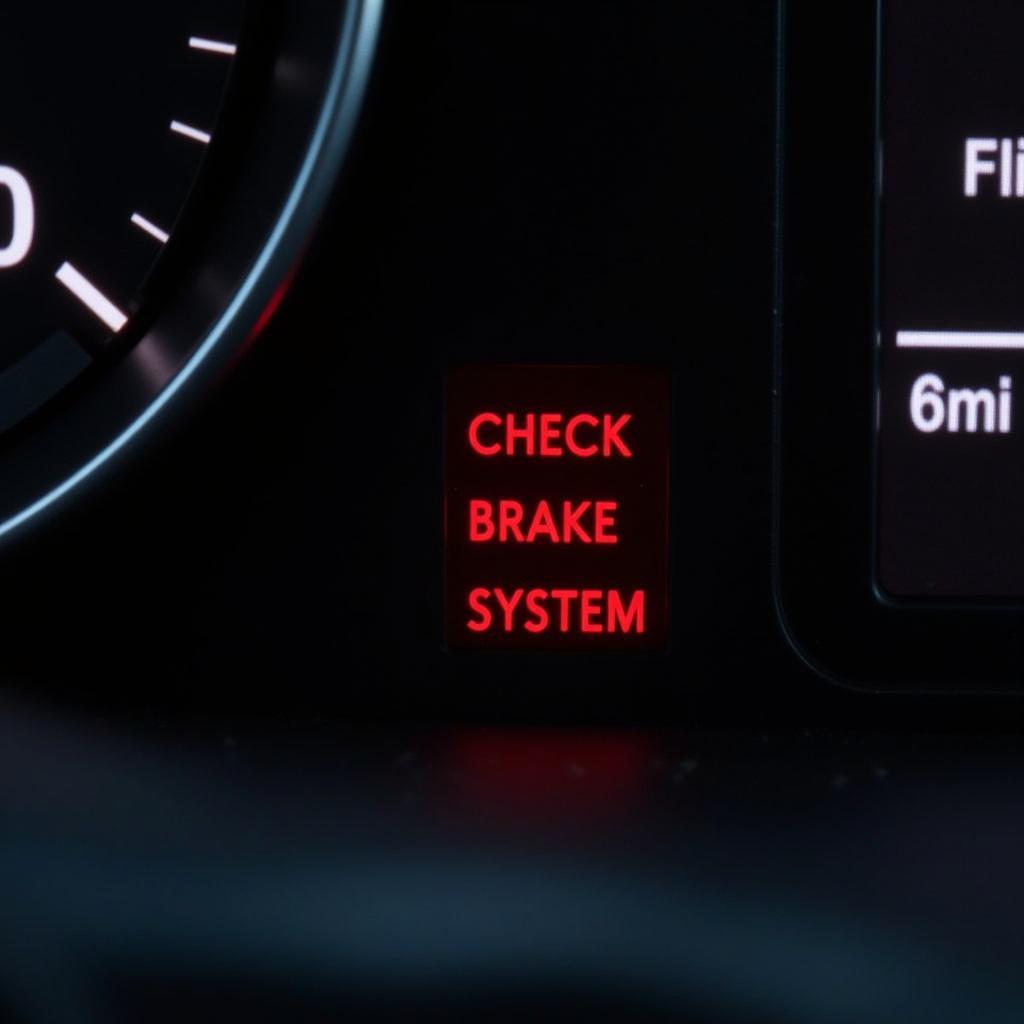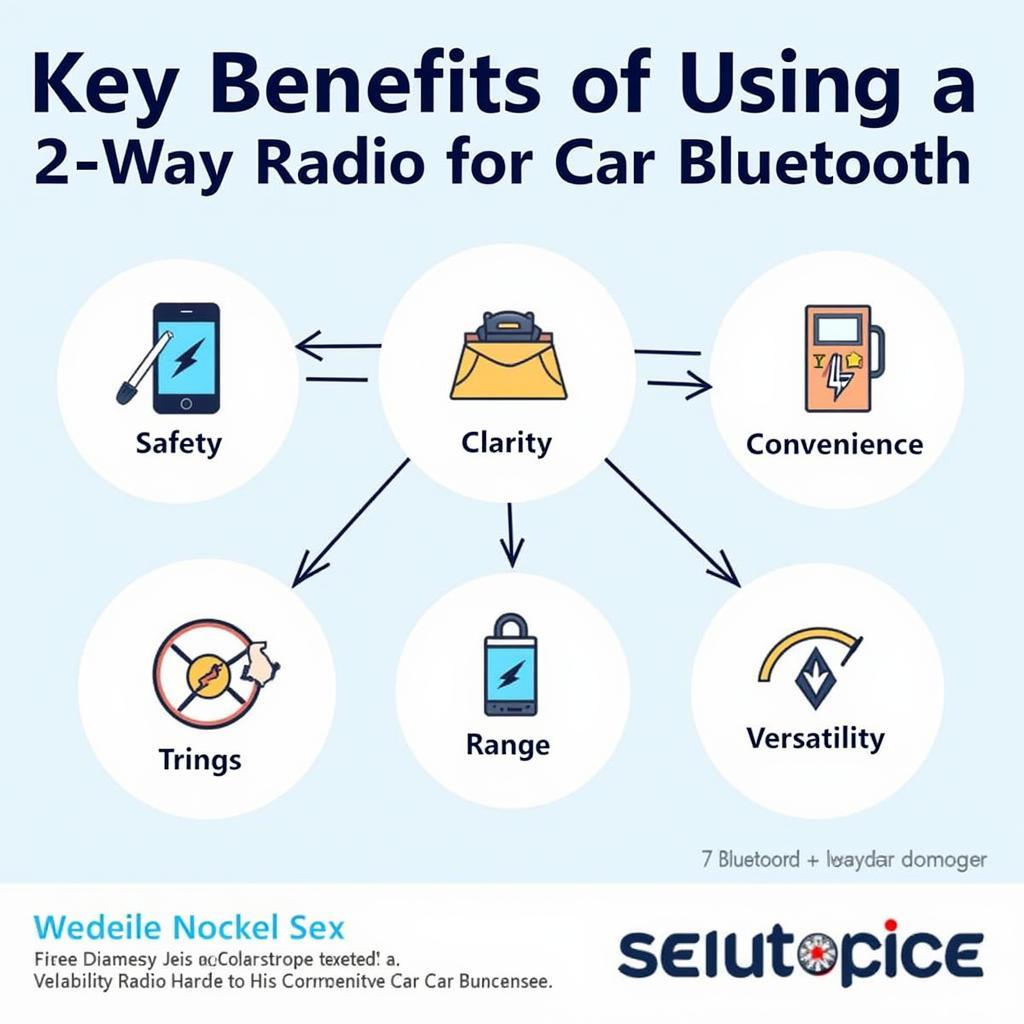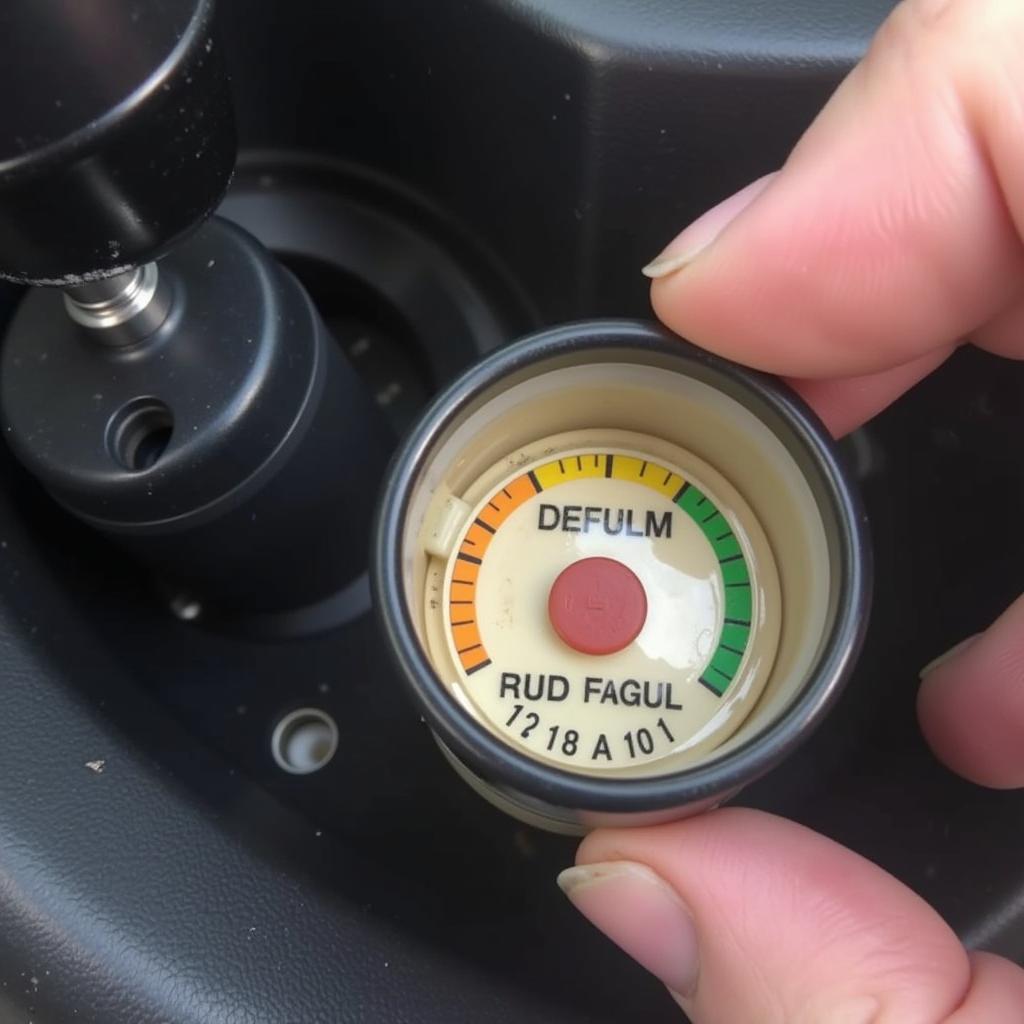That dreaded “check brake system” warning light glaring at you from your dashboard can be unsettling. This article provides a comprehensive guide to understanding why this light comes on, how to diagnose the problem, and potential solutions. We’ll explore everything from simple fixes to more complex issues requiring professional attention, empowering you to take control of your vehicle’s safety. Learn what to do when your brake warning light illuminates, and how to ensure your car remains safe and reliable.
Decoding the Check Brake System Warning
The check brake system warning light is your car’s way of telling you something isn’t right with the braking system. Ignoring it can lead to serious safety risks. This warning can indicate a range of issues, from low brake fluid to more serious problems like worn brake pads or a malfunctioning ABS system. Quickly identifying the cause is crucial for both your safety and the longevity of your vehicle. If you notice your car battery is not working while experiencing brake issues, it could point to an electrical problem. More on that later.
Common Causes of the Warning Light
Several factors can trigger the check brake system warning. Here are some of the most common culprits:
- Low Brake Fluid: This is the most frequent reason. A leak in the brake lines or worn brake pads can deplete the brake fluid level, triggering the warning light.
- Worn Brake Pads: Brake pads are designed to wear down over time. When they become too thin, sensors trigger the warning light.
- Faulty ABS System: A problem with the Anti-lock Braking System (ABS) can also illuminate the warning light. This often requires specialized diagnostic equipment to pinpoint.
- Parking Brake Engaged: Sometimes, the simplest explanation is the correct one. If your parking brake is even slightly engaged, it can trigger the warning.
- Faulty Brake Light Switch: A malfunctioning brake light switch can also cause the warning light to come on.
 Check Brake System Warning Light on Car Dashboard
Check Brake System Warning Light on Car Dashboard
Diagnosing the Problem Yourself
Before rushing to a mechanic, you can perform some basic checks yourself. Remember, safety is paramount when dealing with brakes. If you are unsure about any step, consult a professional.
- Check the Parking Brake: Make sure the parking brake is fully disengaged.
- Inspect Brake Fluid Level: Locate the brake fluid reservoir under the hood and check the fluid level. It should be between the minimum and maximum marks.
- Visually Inspect Brake Pads: If you feel comfortable doing so, you can check the thickness of your brake pads through the wheel spokes. If they appear excessively thin, they likely need replacement. Remember to check your battery symbol car meaning to ensure no electrical issues are contributing to the problem.
- Check Brake Lights: Have someone observe your brake lights while you press the brake pedal. If they don’t illuminate, the brake light switch might be faulty. If you’ve ever had a mini car key battery dead, you know how frustrating a small electrical issue can be. Brake light issues can be similar.
What if the Warning Light Persists?
If the warning light persists after these checks, or if you’re uncomfortable performing them yourself, it’s crucial to seek professional help. A qualified mechanic can use diagnostic tools to pinpoint the exact cause of the problem and recommend the necessary repairs. This is particularly important for issues with the ABS system. Sometimes a 2015 jeep cherokee battery issues can manifest in unexpected ways, affecting various systems including brakes.
Preventing Future Brake Problems
Maintaining your braking system is essential for safety and can prevent costly repairs down the line. Here are some preventative measures:
- Regular Brake Inspections: Have your brakes inspected by a qualified mechanic at least once a year, or as recommended by your vehicle’s manufacturer.
- Timely Brake Pad Replacement: Don’t wait until your brake pads are completely worn down. Replacing them preemptively can prevent damage to the rotors and other brake components. If your battery for jeep key fob needs replacing, don’t delay; the same principle applies to brake pads.
- Monitor Brake Fluid Level: Regularly check your brake fluid level and top it off if necessary. Consistent low levels can indicate a leak that needs immediate attention.
Conclusion
The “check brake system” warning on your dash is not something to ignore. Understanding its potential causes and taking appropriate action can save you from costly repairs and, more importantly, ensure your safety on the road. Remember, proactive maintenance is always the best approach when it comes to your vehicle’s braking system. If the check brake system warning light appears, take heed, diagnose the issue, and seek professional help when necessary.
FAQ
- Is it safe to drive with the check brake system warning light on? It’s not recommended. While you might still be able to brake, the system’s effectiveness might be compromised. Have it checked immediately.
- How much does it cost to fix a check brake system warning? The cost varies depending on the underlying problem. It can range from a simple top-up of brake fluid to more expensive repairs like replacing brake pads or components of the ABS system.
- Can I check my brake pads myself? Yes, you can visually inspect them through the wheel spokes, but a mechanic can provide a more thorough assessment.
- What is ABS, and why is it important? ABS stands for Anti-lock Braking System. It prevents wheel lockup during hard braking, allowing you to maintain steering control.
- How often should I have my brakes inspected? At least once a year, or as recommended by your vehicle’s manufacturer.
- What causes low brake fluid? Leaks in the brake lines, worn brake pads, or a faulty master cylinder are common causes.
- Can a faulty sensor trigger the warning light? Yes, a malfunctioning sensor can sometimes trigger the warning light even if there’s no actual problem with the braking system. A mechanic can diagnose this.


